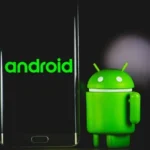The iPhone, Apple’s flagship smartphone, is synonymous with quality, design, and innovation. Since its launch in 2007, the iPhone has redefined what people expect from a smartphone, inspiring loyalty among its users and shaping industry standards. However, while the iPhone is praised for its seamless integration, robust performance, and top-tier security, it also has its drawbacks, including a premium price point and limited customizability. Let’s explore the advantages and disadvantages of the iPhone in 2024 to help you decide if it’s the right choice for your mobile needs.

Advantages of iPhone
1. Unparalleled Ecosystem Integration
One of the iPhone’s biggest strengths is its seamless integration with Apple’s ecosystem, including products like the iPad, Apple Watch, Mac, and AirPods. Features like Handoff, iCloud sync, and Continuity allow users to start a task on one device and finish it on another, creating a fluid experience across all Apple devices. For example, users can answer calls on a Mac, copy text on an iPhone, and paste it directly to an iPad. This synergy makes the iPhone an attractive choice for users who already own Apple products.
2. Industry-Leading Security and Privacy
Apple has built a reputation for prioritizing user privacy and security. The iPhone’s iOS operating system is designed with privacy-first principles, offering features like App Tracking Transparency (ATT) and on-device data processing for tasks like Face ID and Siri. Each iPhone has a secure enclave to protect sensitive data, and Apple’s robust security updates ensure that users remain protected against the latest threats. For users concerned about data security and privacy, the iPhone stands out as a trusted choice.
3. Regular and Reliable Software Updates
Unlike many Android devices, iPhones receive regular software updates for several years. Apple typically provides updates for iPhones released within the last five to six years, which is rare in the smartphone industry. In 2024, iOS 17 has brought new features and performance enhancements even to older models, making the iPhone a long-lasting investment for users who want the latest software features without needing frequent hardware upgrades.
4. High-Quality Camera System
iPhones are known for their excellent camera quality, which includes industry-leading color accuracy, advanced image processing, and low-light performance. Features like Deep Fusion, Night mode, and Smart HDR produce vivid, detailed photos even in challenging lighting conditions. The latest iPhone models, like the iPhone 15 Pro, feature ProRAW and ProRes capabilities, enabling photographers and filmmakers to capture and edit high-resolution content with precision. The iPhone’s camera system remains a top choice for anyone interested in mobile photography or videography.
5. User-Friendly Interface and Consistency
iOS is known for its user-friendly and intuitive interface, with a layout and design that prioritizes ease of use. The consistent design language across iOS makes it simple for even novice users to navigate. Additionally, Apple’s attention to detail ensures that iOS runs smoothly, with minimal bugs and lag, providing a reliable experience that’s particularly appealing to users who prefer a straightforward, consistent user interface.
6. Excellent Customer Support and After-Sales Service
Apple provides outstanding customer support through its AppleCare program and in-store Genius Bars, where users can receive face-to-face assistance. AppleCare extends warranty coverage and includes support for accidental damage, which can be a lifesaver for users who want peace of mind. Moreover, Apple’s global presence means that support is readily available in many regions, making iPhone ownership a hassle-free experience.
7. Strong Resale Value
iPhones tend to retain their resale value better than most other smartphones. Apple’s reputation for durability and long-term software support means that older iPhone models still fetch good resale prices even years after release. For users who plan to upgrade every few years, the iPhone’s high resale value can make upgrading to a new model more affordable compared to devices with lower resale potential.
8. Top-Tier Build Quality and Design
Apple is known for its attention to detail in both design and materials. The iPhone’s use of high-quality materials, such as Ceramic Shield glass and aerospace-grade aluminum or stainless steel, contributes to its premium feel and durability. The design is not only aesthetic but also ergonomic, providing a comfortable user experience. In 2024, the iPhone 15 series continues this trend with refined materials and subtle design improvements that make the device look and feel luxurious.
9. Integration of Advanced Technologies Like MagSafe
Apple’s MagSafe technology, reintroduced with the iPhone 12, offers a unique way to charge and accessorize the device. MagSafe allows compatible chargers and accessories to snap onto the back of the iPhone for quick alignment and convenience. Since then, the MagSafe ecosystem has expanded to include a wide range of accessories, from wallets to mounts, which makes the iPhone even more versatile and convenient.
Disadvantages of iPhone
1. High Cost Compared to Competitors
The iPhone is one of the most expensive smartphones on the market. With prices for the latest models exceeding $1,000, iPhones are not always affordable for budget-conscious users. While Apple offers more affordable options like the iPhone SE, these models lack many of the features found in the Pro versions. The high price point of flagship models can be a significant barrier for those who want the latest technology but are unwilling to pay a premium.
2. Limited Customization Options in iOS
Unlike Android, which allows users to modify almost every aspect of the interface, iOS offers limited customization options. Although Apple has introduced more personalization features in recent years, such as widgets and home screen customization, iOS still doesn’t provide the same level of flexibility as Android. For users who enjoy personalizing their devices extensively, iOS may feel restrictive.
3. Closed Ecosystem Limits Flexibility
Apple’s ecosystem is designed to work seamlessly with its own products, but this closed approach can be limiting for users with non-Apple devices. Transferring files between an iPhone and a non-Apple device, for example, can be more challenging than with open systems like Android. Additionally, features like AirDrop and Handoff are exclusive to Apple devices, which can restrict flexibility for users who prefer a more open ecosystem with greater cross-platform compatibility.
4. Dependence on Proprietary Accessories
Apple’s use of proprietary accessories, like the Lightning cable (used until the iPhone 15) and MagSafe, can be inconvenient for users accustomed to universal standards. Although the iPhone 15 series has now adopted USB-C, the reliance on Apple-specific accessories can still be limiting. Accessories such as cases and chargers for earlier models require Apple’s proprietary designs, which are often more expensive than third-party options available for other smartphones.
5. No Expandable Storage
Unlike many Android phones, which offer microSD slots for expandable storage, iPhones have fixed storage capacity. Users must choose the right storage option at the time of purchase, with higher storage models costing significantly more. For users who need extensive storage for photos, videos, and apps, this limitation can be frustrating, particularly given the high cost of upgrading to larger storage options.
6. Shorter Battery Life on Some Models
While iPhones are known for their optimized performance, some models, particularly non-Pro versions, may have shorter battery life compared to certain Android devices. Though Apple continues to improve battery life with each generation, users who prioritize extensive usage without recharging may find that certain iPhone models don’t measure up to the longevity of some competitors. This can be particularly noticeable for users engaged in power-intensive activities like gaming or video streaming.
7. Restrictions on File Sharing and App Sideloading
Apple restricts file sharing and app sideloading on iOS, which can limit flexibility for advanced users. Unlike Android, where users can download apps from third-party sources, iPhones are restricted to the App Store, unless the device is jailbroken (which voids warranties and can compromise security). While this limitation enhances security, it also reduces the freedom users have over their devices, making it less appealing to those who want a more open experience.
8. Delayed Adoption of Certain Technologies
Apple has a reputation for adopting new technologies at a slower pace than some of its competitors. For instance, while many Android devices adopted 120Hz displays and 5G early, Apple only introduced these features with the iPhone 13 series in 2021. Apple’s conservative approach to new technology can be frustrating for tech enthusiasts who want access to the latest advancements as soon as they’re available.
9. Reliance on iCloud for Storage Backup
While iCloud provides a seamless way to back up photos, files, and settings, it can be costly for users who need substantial cloud storage. The free 5GB of iCloud storage provided with each Apple ID is often insufficient, especially when factoring in device backups and media. Users frequently need to purchase additional storage plans, adding ongoing costs. Additionally, iCloud’s performance can be impacted by regional data availability and internet speeds, limiting accessibility for users without stable internet.
Conclusion
The iPhone is a powerful and feature-rich device, providing a polished experience that integrates beautifully with the Apple ecosystem. With top-tier security, a high-quality camera system, and consistent software updates, it’s easy to see why the iPhone remains one of the most popular smartphones globally. However, the iPhone’s high price, limited customization, and dependence on the Apple ecosystem can be drawbacks for certain users.
For those deeply invested in the Apple ecosystem or who prioritize a seamless, secure experience, the iPhone is an excellent choice. But for users who need more flexibility, customization, or affordability, alternatives like Android smartphones may offer a better fit. Whether the iPhone is right for you ultimately depends on your personal preferences, tech needs, and budget.

